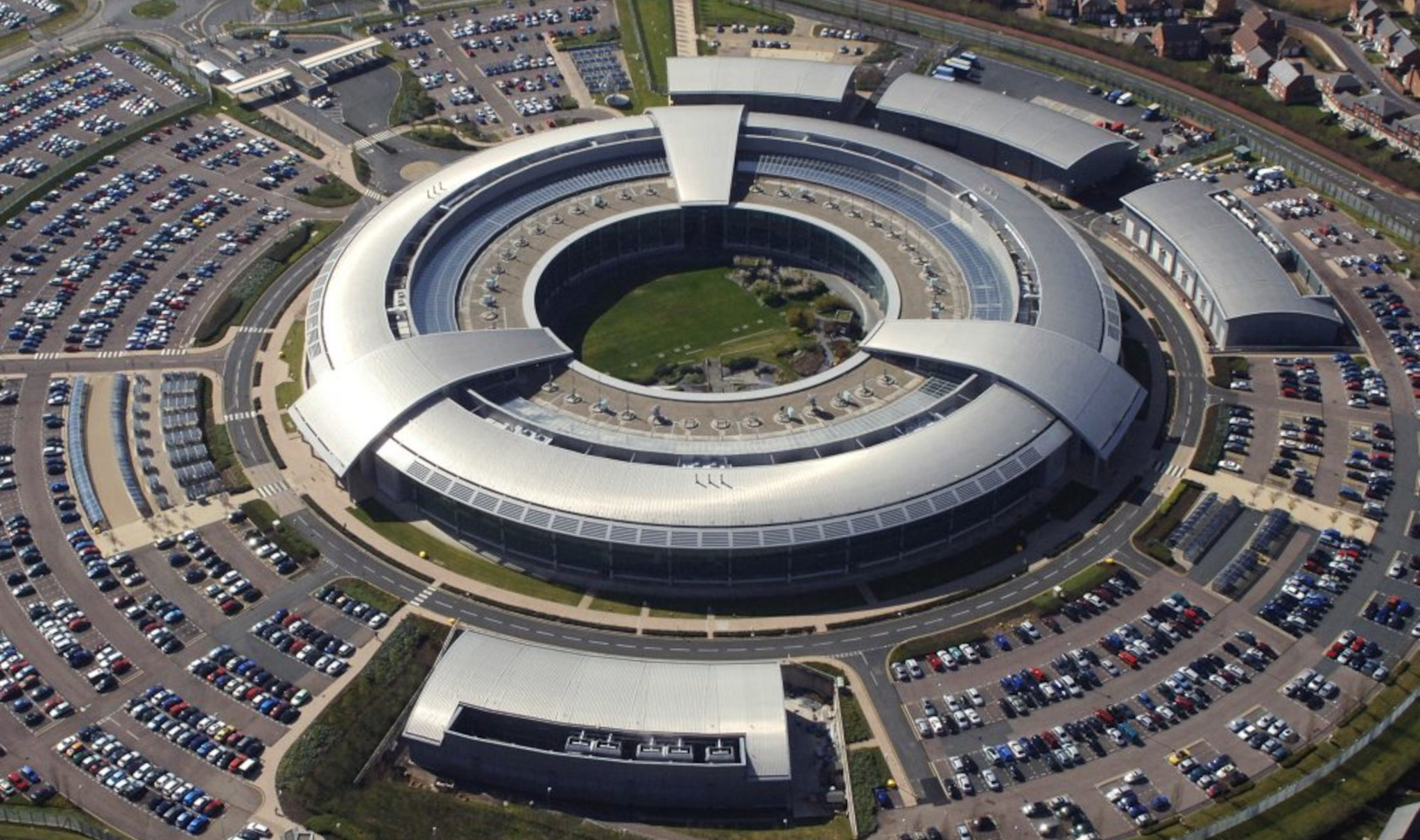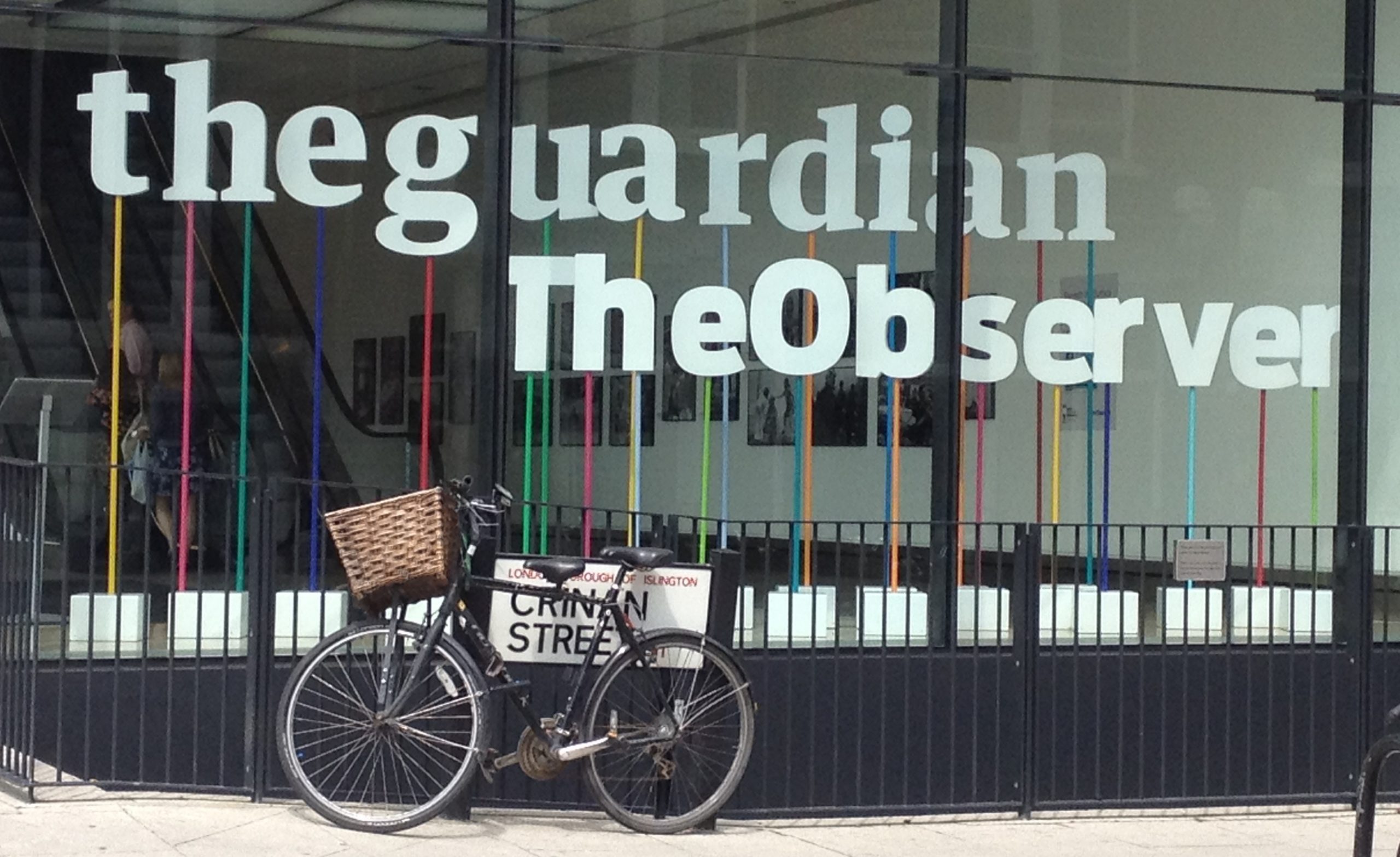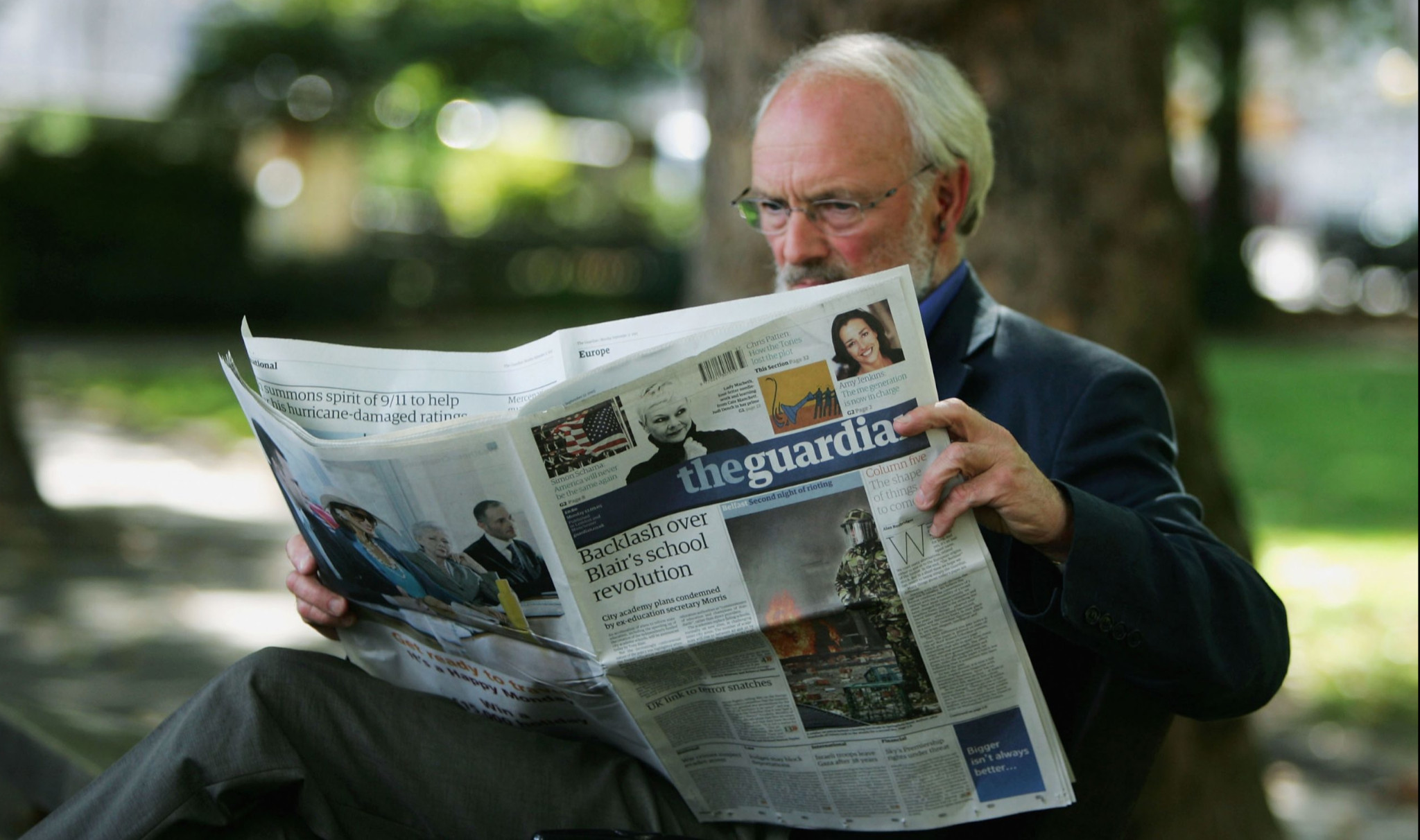Most of the articles the Guardian publishes about GCHQ, the UK’s largest intelligence agency, are puff pieces, our research has found.
We reviewed all the paper’s 59 articles tagged with GCHQ in the past three years and found that 35 (59%) can be considered sycophantic towards the agency.
Twelve articles were found to be somewhat critical and another twelve neutral.
Some 14 of the puff pieces have been written by the Guardian’s defence editor, Dan Sabbagh.
The obsequious coverage of GCHQ is especially noticeable in light of Gaza. The spy agency says it plays a role in all of Britain’s wars and operates major bases on Cyprus, which is being used by Britain to support Israel’s war on Gaza.
Yet the Guardian has not apparently mentioned these roles for GCHQ in its reporting on Gaza.
Helping GCHQ recruit
The Guardian routinely publishes material directly from GCHQ about its puzzles. The spy agency uses its “brain teasers” as part of its public relations drive and to attract young recruits.
“Its annual puzzle is a rare opportunity to engage the public and encourage children to take up science, engineering, technology and mathematics and perhaps pursue a career at GCHQ”, Sabbagh wrote last December.
Covering GCHQ’s Christmas puzzle the previous year, Sabbagh wrote that the spy agency “is keen to find ways to promote itself to help with recruitment, emphasising the scientific and technical expertise critical to its work”.
The Guardian appears to be more than willing to help in this recruitment drive.
“Neurodivergent women sought for jobs at GCHQ and BAE Systems”, one Guardian headline reads. Another announces: “Recruitment of UK spies no longer restricted to those with British parents”.
Still others read: “GCHQ seeks to increase number of female coders to tackle threats” and “‘Huge sense of pride’: The mothers who job-share counter-terrorism at GCHQ”.
In the latter article, published in May 2022, the Guardian was given access to “two mums” – “Vicky and Emily, who cannot reveal their real names for security reasons” and “are responsible for the entire counter-terrorism mission at GCHQ”.
It was the sort of article that might appear in an in-house newsletter.
Amplification
Other Guardian articles provide a platform for GCHQ’s views on official enemies, usually covered uncritically.
Typical headlines include: “GCHQ warns of fresh threat from Chinese state-sponsored hackers”, “GCHQ head: Putin making strategic errors due to unconstrained power” and “Putin advisers ‘afraid to tell him truth’ about Ukraine error, says GCHQ head”.
Since it is obvious GCHQ has policy interests to promote, it can be assumed the Guardian is consciously helping the spy agency to achieve its public information objectives.
GCHQ’s claims are routinely reported as fact. One article headlined: “Ransomware attacks in UK have doubled in a year, says GCHQ boss”, with a first line saying this was “disclosed” by GCHQ, rather than “claimed” or “asserted”.
The article noted this assertion followed “warnings that Russia and China are harbouring criminal gangs that are successfully targeting western governments or firms”.
Neither this article, nor any others Declassified could find, suggested GCHQ might have reasons for heightening the perceived threat from Moscow and Beijing.
Limits of criticism
In a dozen articles in the past three years the Guardian adopted a somewhat critical stance towards GCHQ, for example twice covering the role of British spies in the torture of a detainee at the US base at Guantánamo Bay, Cuba.
The paper also covered in two articles the unlawful mass surveillance measures used by GCHQ to spy on the public.
But noticeable is what the Guardian doesn’t touch. One topical issue is the location of GCHQ’s interception facilities on Cyprus that sit 220 miles from Gaza. Another is what is known about GCHQ’s supportive relations with Israel.
Neither has the paper mentioned in its recent coverage the secret, and expanding, GCHQ base in the dictatorship of Oman, which strategically located near Iran.
Other stories Declassified has recently covered about GCHQ concern its role in secretly obtaining the mobile phone passwords of members of the travelling public – in a programme called “phantom parrot”.
Neutralised
Declassified previously found the Guardian has been successfully targeted by security agencies to neutralise adversarial reporting of the security state.
After the paper published major revelations from US whistleblower Edward Snowden in 2013, UK intelligence ratcheted up efforts to deal with the exposures.
In July 2013, GCHQ officials entered the Guardian’s offices in London and its deputy editor Paul Johnson, along with two others, spent three hours destroying laptops containing the Snowden documents.
It was part of a process in which the paper went in a short space of time from being the natural UK media outlet to expose state wrongdoing to a platform trusted by the security state to amplify its information operations.
The Guardian was asked to comment but no reply was received.
The research covered Guardian articles tagged as GCHQ from 1 February 2021 to 29 February 2024.





